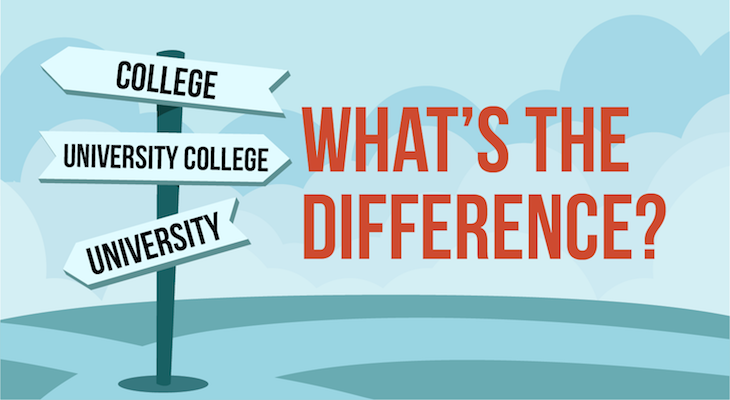College vs. University College vs. University: What’s the Difference?
If you’ve always wondered what the differences are between colleges, university colleges and universities, now’s your chance to find out! We break down the key differences here.
Updated 31 Dec 2021

You may have noticed the varying terms — college, university college and university — when deciding which education institution to enrol at. Although your siblings, friends and relatives may have used these terms interchangeably, did you know that they don’t mean the same thing?
Yes, that’s right! In this article, we reveal the key differences between these 3 terms so that you know what you’re getting into when selecting an education institution.
#1. College

In Malaysia, colleges are tertiary education bodies that can only award certain types of qualifications.
The qualifications that colleges can offer are:
- Certificate courses
- Pre-university courses (e.g. A-Level, Australian Matriculation)
- Diploma courses
- 3+0 undergraduate degree programmes from other universities (usually from overseas universities such as Australia and UK)
This means that if you complete a degree at a college, your graduation certificate will be awarded by the college’s partner university instead of the college you’re studying at.
Besides that, colleges are also often smaller in size compared to university colleges and universities as they generally offer fewer courses.
#2. University college

Compared to colleges, university colleges hold a higher status as they can award their own degrees.
Qualifications that university colleges can offer are:
- Foundation courses (e.g. Foundation in Science, Foundation in Arts)
- Diploma courses
- Undergraduate degrees (awarded by the university college itself)
- Postgraduate degrees
A university college is often in the process of becoming a university, which means that it is focused on undergraduate and postgraduate levels (as opposed to pre-university courses), research and development and academic writings.
The government also requires university colleges to have a much higher paid-up capital (i.e. investment) compared to colleges. Therefore, you can expect university colleges to have better facilities and often larger campus grounds. Additionally, all courses with at least 1 graduating cohort must be fully accredited, ensuring that your qualification meets the quality standards set by the government.
Apply for university with EduAdvisor
Secure scholarships and more when you apply to any of our 100+ partner universities.
Start now#3. University

The word “university” has roots in the Latin language that translates to “community of teachers and scholars”. Among the 3 types of institutions, universities hold the highest status, with the ability to confer their own degrees.
Qualifications that universities can offer are:
- Foundation courses (e.g. Foundation in Science, Foundation in Arts)
- Diploma courses
- Undergraduate degrees (awarded by the university)
- Postgraduate degrees
Universities can award degrees in various academic disciplines. This is in contrast to university colleges that issue degrees within specialised fields.
Because of its status, a university is usually very much focused on contributing to the academic field through research and development as well as publishing papers and journals. This often translates to better research and lab facilities. In addition, given the stringent criteria set by the government, the majority (if not all) of the courses are often fully accredited.
And there you have it! Although the terms college, university college and university are used interchangeably, they don’t necessarily mean the same thing. While the status of an education institution is important, it’s also worth considering other crucial factors as well, such as campus location, budget and your personal interests, before making a decision. Good luck!







